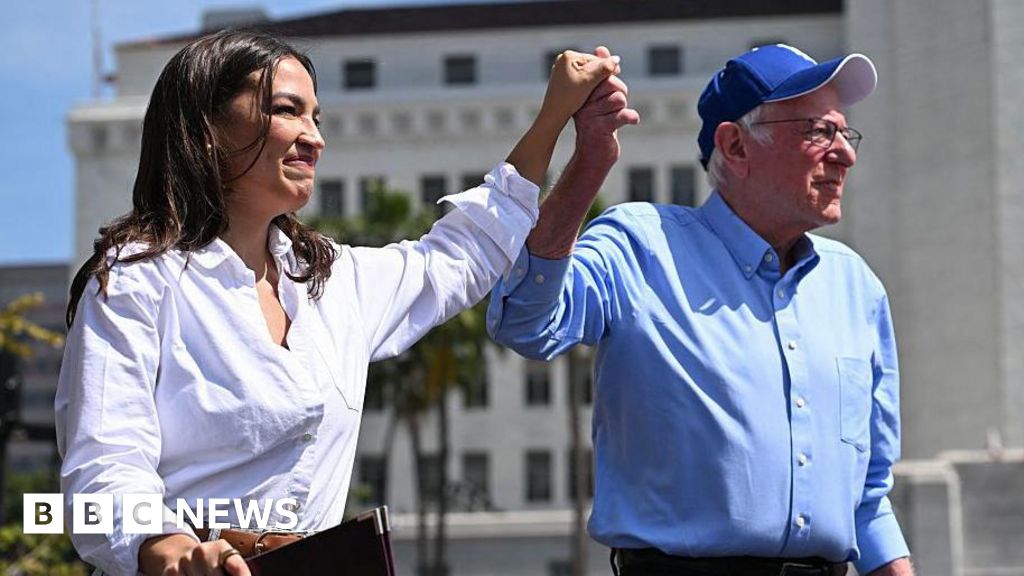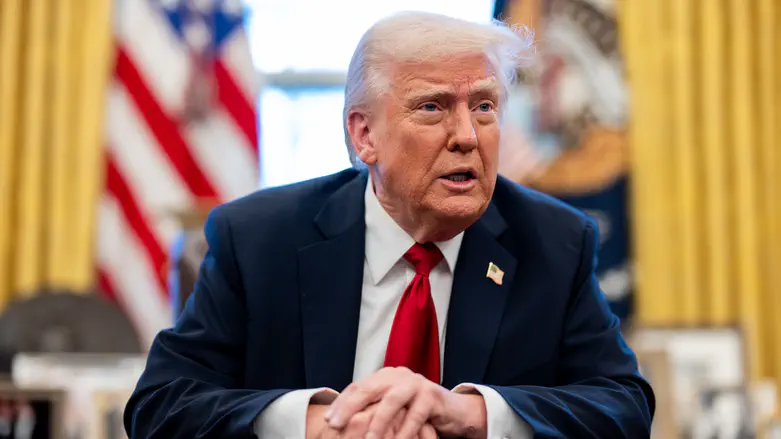Law Firm Susman Godfrey Takes a Stand Against Trump's Executive Orders
This month, President Donald Trump issued a surprising executive order that targeted Susman Godfrey, a law firm known for its prominent role in the legal community. The order was described by one attorney representing the firm as a "total bolt from the blue" during a subsequent court hearing. According to two insiders, there were no prior communications between Susman Godfrey and the White House about any potential negotiations regarding the order, indicating the unexpected nature of this political maneuver.
Despite the shock, the partners at Susman Godfrey swiftly resolved to take action, unanimously deciding to sue the United States government within two hours of reviewing the executive order. This decisive move underscored the firms commitment to defending their principles and their clients rights in the face of governmental pressure.
As Trumps political campaign increasingly targets large law firms, several have opted to negotiate, with nine firms agreeing to provide pro bono services amounting to a collective promise of $940 million. In contrast, four firmsincluding Susman Godfreychose to resist the administrations stance and fight back in court.
Despite the potential risks involved, it appears that these four firms have not suffered significant backlash for their decision. Judicial responses have been favorable; federal judges have swiftly blocked the most impactful provisions of each executive order, hinting at a likely eventual ruling in favor of the law firms involved. This judicial support was particularly crucial for Jenner & Block, where 40% of its revenue derives from clients with government contracts. Although some clients expressed concern, only one client severed tiesone that the firm had represented on a pro bono basis.
Perkins Coie, another firm among the four leading the charge, has also reported that its major clients, including giants like Amazon and Boeing, have maintained their relationships, although it did lose some work from Honeywell. William Malley, the managing partner of Perkins Coie, mentioned to The American Lawyer that he perceives a momentum in business this year, with average profits per equity partner showing a remarkable increase of nearly 16% in 2024.
Meanwhile, the full extent of potential repercussions for WilmerHale and Susman Godfrey remains clouded, as both firms indicated in court that the executive orders would adversely affect their operations but did not furnish specific examples of client losses.
In the courtroom battles, these law firms have been successful in contesting Trumps executive orders, arguing that they contradict the Constitution and exemplify unlawful governmental targeting based on individuals speech and their clients' rights to counsel. The orders accused the firms of running discriminatory diversity, equity, and inclusion (DEI) programs and identified certain lawyers as national security risks based on their past investigations into Trump.
The Justice Department's defense has presented the argument that Trumps executive powers are too extensive for judicial intervention. During a hearing on April 23, US District Judge Beryl Howell, who is presiding over Perkins Coies case, expressed disbelief at the government's claims, subjecting Justice Department attorney Richard Lawson to a series of pointed and often sarcastic inquiries about the executive order's scope, dismissing some of his legal arguments as lacking in merit.
On the opposing side, the law firms have enlisted the support of respected legal figures and organizations. Perkins Coie has partnered with Williams & Connolly, while Jenner & Block is represented by Cooley LLP. WilmerHale has engaged the services of well-known legal expert Paul Clement, and Susman Godfrey has teamed up with Munger Tolles, a prestigious firm that previously prepared a legal brief opposing Trumps executive orders. Each lawsuit has also garnered numerous amicus briefssupportive legal argumentsfrom a variety of entities, including legal scholars, former judges, bar associations, and advocates for press freedom.
Judge Loren AliKhan humorously noted the uneven playing field during a hearing for Susman Godfrey, commenting to Lawson on his underrepresentation at the session.
The implications of these executive orders are significant, as they could have revoked government contracts, security clearances for the lawyers, and access to government buildings and courthouses. Brad Karp, the chair of Paul Weissone of the first firms targeted by Trumpdescribed the executive order as creating an existential crisis for the firm, which led to their decision to negotiate. The law firms that ultimately agreed to terms with the White House include Paul Weiss, Skadden, Milbank, Willkie Farr, Cadwalader, Kirkland & Ellis, A&O Shearman, Simpson Thacher, and Latham & Watkins. For now, these firms enjoy Trumps favor, but the stability of their agreements is uncertain. The vague terms of each deal and the potential for future executive orders pose risks for these firms if they engage in litigation against the administration or work with clients that Trump disapproves of.
Interestingly, Trump has previously hinted at utilizing these law firms for purposes such as negotiating trade deals, indicating a broader agenda that may extend beyond conventional legal matters. Mike Howell, associated with the conservative Heritage Foundation, has reached out to numerous law firmssome that have not yet been targeted by Trumpasking them to contribute $10 million worth of legal services to litigate freedom of information lawsuits against agencies in Democratic-controlled states.
The stark choices faced by law firms regarding whether to fight or capitulate have led to significant divisions within the legal community. Tensions are palpable between litigators and dealmakers, as well as among partners at large firms versus those at smaller, more democratic partnerships. Sean Burke, a legal headhunter, suggested that had Paul Weiss maintained its resistance, it could have inspired a stronger collective front against the administrations tactics.
The fallout from these choices is evident, with some legal professionals experiencing career shifts. The leader of Paul Weiss pro bono practice resigned, citing long-standing plans for a transition, while a prominent government contracts lawyer at Perkins Coie has moved to another firm. Discontent is also evident on platforms like LinkedIn, where associates have publicly criticized their employers for entering deals with Trump. Others are quietly departing firms that opted for negotiations, citing financial pressures as a factor in their decision-making.
The prevailing atmosphere within the legal sphere has transformed into one of apprehension and fear. A former federal prosecutor shared that while some partners express pride in their firms resistance, there remains an overarching anxiety about the state of affairs. In-house lawyers for various companies are similarly wary, seeking assurances that their external counsel is prepared to contest governmental actions when necessary. One such lawyer expressed doubts about engaging with firms willing to capitulate, stating that it feels disingenuous to trust those willing to cave to government pressure.
The legal landscape continues to evolve as firms navigate the complex interplay between political influences and their professional responsibilities.


























